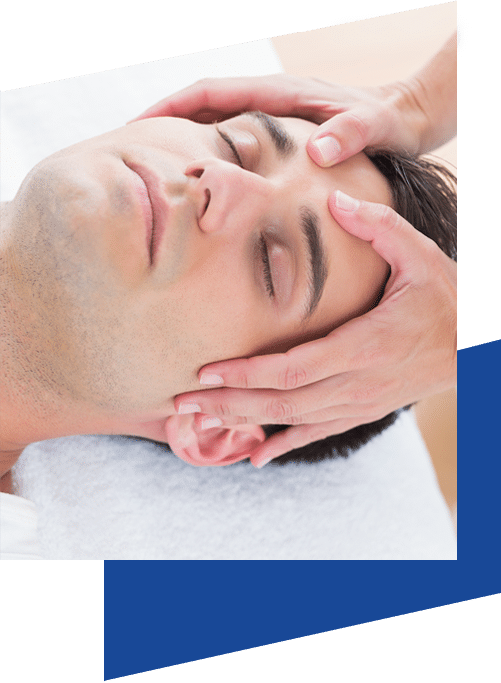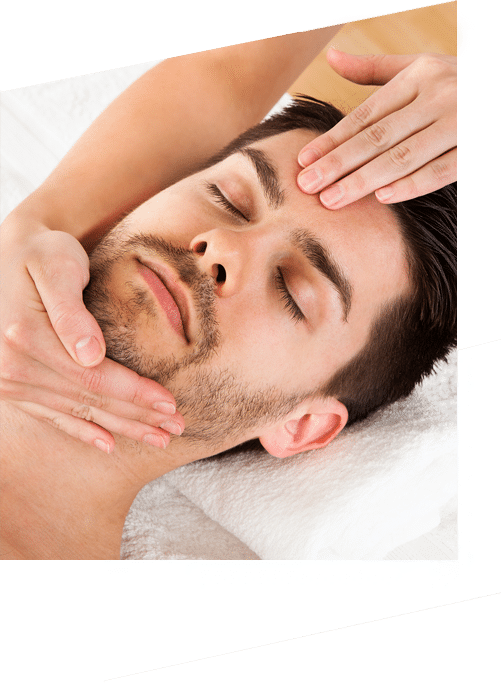Headaches, such as tension headaches and migraines, are common conditions that affect many individuals. It is essential to understand the characteristics and differences between these headache types to effectively manage and find relief.
At Infinity Allied Physiotherapists, our specialised team offers comprehensive care for tension and migraine headaches, delivering personalised treatment plans to alleviate symptoms and improve quality of life.
To book a consultation contact us at (02) 9896 2877 or by emailing frontdesk@iahc.com.au
Advanced Physiotherapy Advanced and modern manual therapy and hands on techniques. |

1 on 1 |

Quick |
Highest Standard |
What is a tension headache?
Tension headaches are the most prevalent type of headache experienced and are often described as a constant, dull ache or pressure that affects both sides of the head.
Causes of tension headache
The exact cause of tension headaches is not fully understood. However, it is believed that a combination of factors, including muscle tension and changes in brain chemicals, contributes to their development.
Other factors such as:
- Stress
- Anxiety
- Poor posture
- Muscle tension
- Inadequate sleep
- Eye strain
- Certain foods or drinks may also play a role
Symptoms of tension headache
Typical symptoms of tension headaches include:
- Mild to moderate, band-like pressure or tightness around the head
- Neck pain
- Tenderness in the scalp, or shoulder muscles
- Aching or pressure at the temples or forehead

Neck and shoulder pain may be a symptom of a tension headache.

Physiotherapy treatments can be beneficial in the management of tension headaches.
What is a migraine headache?
Migraine headaches are recurring headaches that are often moderate to severe in intensity. They are accompanied by additional symptoms that can significantly impact daily life.
Causes of migraine headache
The exact cause of migraines is not fully understood. However, the following are believed to contribute to their development:
- Genetic factors
Hormonal changes - Specific triggers (such as certain foods, environmental factors, or sensory stimuli)
- Abnormal brain activity
Symptoms of a migraine headache
Migraine headaches typically present as a pulsating or throbbing pain on one side of the head, lasting for hours to days.
Additional symptoms can include:
- Nausea
- Vomiting
- Sensitivity to light and sound
- Visual disturbances are known as auras, which may occur before or during the headache
Migraines can significantly impact daily activities, often requiring individuals to seek a quiet and dark environment.

Diagnosis of migraine headache
Diagnosing migraines involves a comprehensive assessment of:
- Patient’s symptoms
- Medical history
- Physical examination
In some cases, additional tests, such as blood tests or imaging studies, may be conducted to rule out other underlying conditions.

Migraine treatment options
Treatment for migraines focuses on relieving symptoms during an episode and preventing future attacks.
Medications such as triptans, pain relievers, anti-nausea medications, and preventive medications may be prescribed based on the frequency and severity of the migraines.
Lifestyle modifications, stress management, trigger identification and avoidance, and relaxation techniques can also be beneficial.
Physiotherapy for migraine headaches
While migraines have complex causes, physiotherapy can still be beneficial in managing the associated symptoms and improving overall well-being.
Physiotherapy treatment for migraines may include:
- Manual Therapy: Techniques such as gentle joint mobilisation, myofascial release, and trigger point therapy can help relieve muscle tension and reduce pain associated with migraines.
- Exercise and Stretching: Specific exercises and stretches targeting the neck, shoulders, and upper back can help improve posture, muscle strength, and flexibility, reducing the frequency and intensity of migraines.
- Relaxation Techniques: Relaxation exercises, deep breathing techniques, and guided imagery to promote relaxation, reduce stress, and alleviate migraine symptoms.
- Postural Education: Correcting posture and providing ergonomic advice for workstations and daily activities can help reduce strain on the neck and upper back muscles, which can contribute to migraines.
- Stress Management: Identifying stress triggers and implementing stress management strategies, such as mindfulness practices and relaxation techniques, to help manage migraines.
Contact us to book your consultation or book online.
Cost of headache and migraine treatment
Infinity Allied Healthcare
For effective and personalised headache and migraine treatment, Infinity Allied Healthcare is a trusted provider. Our team of skilled healthcare professionals offers specialised care to alleviate symptoms and improve well-being.
With a patient-centred approach, we develop customised treatment plans that may include physiotherapy, lifestyle modifications, and stress management techniques.
Contact us to book your consultation or book online and take the first step towards finding relief.
Frequently Asked Questions
How do I know it's a tension-type headache?
Tension-type headaches are typically characterised by dull, aching pain or pressure that affects both sides of the head.
The pain is often described as a tight band or pressure around the forehead or back of the head.
Can physiotherapy help with migraine pain?
Physiotherapy can be beneficial in managing migraine pain.
Physiotherapists can employ techniques such as manual therapy, relaxation exercises, postural correction, and targeted exercises to address muscle tension, improve posture, reduce stress, and alleviate pain associated with migraines.
Is physio helpful during migraine attacks?
Physiotherapy techniques such as relaxation exercises, gentle manual therapy, and postural adjustments can potentially provide some relief during a migraine attack.
However, it is important to note that individuals experiencing a migraine attack may be sensitive to touch and prefer to rest in a quiet, dark environment.
Please note that this information is not intended to be used for diagnosis or treatment. It is aimed at presenting a perspective only and is not a substitute for a prescription. Anyone experiencing a medical condition or requiring medical therapy should consult their doctor. A second opinion is also encouraged.


